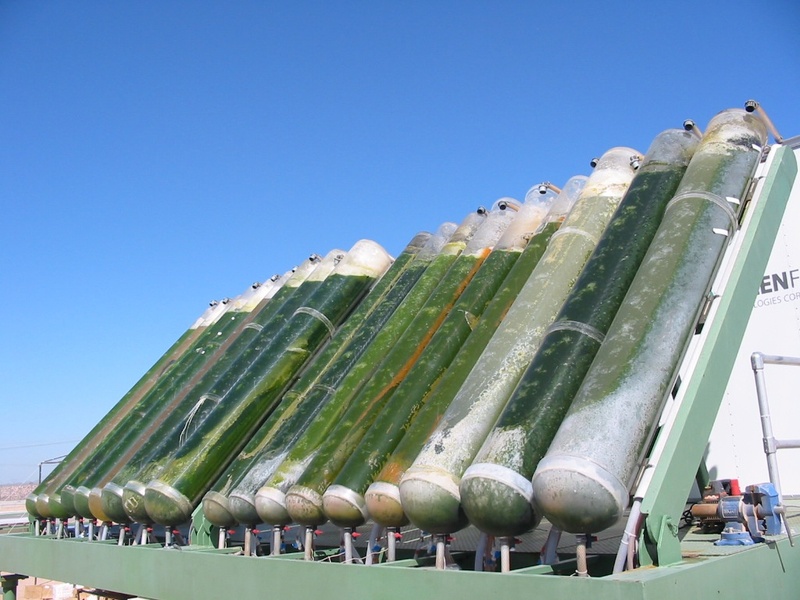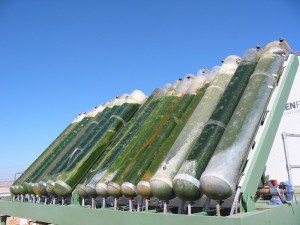
09 Mar EARTH MATTERS: BLUE GOLD FOR 21ST CENTURY
Editor’s note: This is the fourth story in a weekly series by the team of scholars/dynamic enviro-activists Anna Zivian and Billy Mason. Both have deep ties to Telluride, but have gone out into the world to make a difference. They are.
 Yesterday I grudgingly went to the local gas station to fill my car with gas. It wasn’t the $4 per gallon price that caused my forehead to wrinkle; it was that I am painfully aware of the billions of tax dollars given to foreign oil industries. It makes no sense that our country of great wealth and innovation allows itself to be held hostage by foreign imports and antiquated technology. Adding injury to insult, the crude oil that we refine into gasoline produces pollutants that harm our health and greenhouse gases that contribute to climate change. Currently, America has only about 2% of the world’s oil reserves yet we are the number one gasoline producer and contributor to human-induced climate change in the world. Wouldn’t it make social, economic, and environmental sense to invest the billions of tax dollar subsidies into developing alternative sources of energy instead of lining the pockets of foreign corporations? Why do some of our elected politicians want to increase our deficit instead of investing in new technology that would create job opportunities and foster American world leadership?
Yesterday I grudgingly went to the local gas station to fill my car with gas. It wasn’t the $4 per gallon price that caused my forehead to wrinkle; it was that I am painfully aware of the billions of tax dollars given to foreign oil industries. It makes no sense that our country of great wealth and innovation allows itself to be held hostage by foreign imports and antiquated technology. Adding injury to insult, the crude oil that we refine into gasoline produces pollutants that harm our health and greenhouse gases that contribute to climate change. Currently, America has only about 2% of the world’s oil reserves yet we are the number one gasoline producer and contributor to human-induced climate change in the world. Wouldn’t it make social, economic, and environmental sense to invest the billions of tax dollar subsidies into developing alternative sources of energy instead of lining the pockets of foreign corporations? Why do some of our elected politicians want to increase our deficit instead of investing in new technology that would create job opportunities and foster American world leadership?
Social, economic, and environmental history has proven that stagnation eventually leads to collapse. Survival requires adaptation. Unless Americans want to become the cash cows for BP, Shell, and other multinational corporations, we need to get out of the back seat of the cab and start driving. Recently, China has invested $100 billion dollars in the development of alternative energy sources, yet our divided Senate could only muster $8 billion. Consequently, thousands of high paying jobs worth millions of dollars in revenue were lost to overseas corporations.
We currently have the technology to move forward with sustainable alternative energy sources such as solar, wind, hydroelectric, tidal, geothermal, and various types of bio-fuels that would avoid the environmental pitfalls associated with using finite resources such as oil shale and natural gas. The ongoing debate among advocates of sustainable alternative energy sources boils down to the efficiency of the various technologies. The advantage of solar, wind, hydroelectric, tidal, geothermal entails utilizing natural energy sources that are sustainable. Nonetheless, each one of these technologies has some limitations and/or potential impacts. For example, wind and tidal are intermittent, disrupt species migration, and create visual impacts. In addition, run-on-river hydroelectric energy is also intermittent because it depends on high water volumes to produce energy and hydroelectric energy produced by damming a river that disrupts its ecosystem. Solar is climate dependent, and requires large tracts of land or creates vertical visual impacts. Likewise, access points for capturing geothermal energy move due to shifts in the Earth’s crust. Some of the best multi-cell plant derived bio-fuels, such as Jatropha and palm oil, require arable land, fresh water and fertilizer, which are typically procured from petroleum.
Of all the potential sustainable alternative energy sources currently available, the adaptability of micro-algae derived bio-fuels, known as “Blue Gold,” to a variety of climates may make it the best bang for the buck on a global scale. Unlike plant-derived bio-fuels, “Blue Gold” can be grown in a closed system on non-arable land or in the ocean using saltwater, brackish or sewer water, and CO2 for fertilizer. It can also be hybridized for a wide range of geographic locations and climates. In addition, the “Blue Gold” process facilitates multiple symbiotic relationships. For example, the Arizona Power Supply Company uses emissions captured from their Blackhawk power plant outside Phoenix to fertilize their micro-algae closed system production. They can also use the husk of the algae after producing the bio-fuel for use as an agricultural fertilizer. Compared to plant-derived bio-fuels, the energy content of “Blue Gold” is 10 to 20 times greater than Jatropha. Furthermore, according to independent studies, “Blue Gold” can be produced at half the unsubsidized cost of producing gasoline. Currently, the Island of Maui in Hawaii is the only locality moving forward to build a full-scale micro-algae bio-fuel plant. Their goal is to reduce oil imports 70% by 2030. The primary reason that Shell oil has not proceeded in wide scale development of “Blue Gold” hinges upon the cost of transition away from petroleum and a lack of political pressure.
The solution to our overlying problem is a redistribution of interest in Congress. Currently, many of the politicians in Congress represent states that depend on energy- producing industries that are based on finite resources such as petroleum, natural gas, and/or coal. In order to cause a shift in interest away from supporting these industries, Americans need to vote for politicians who want to stop subsidizing oil, natural gas, and coal and invest in sustainable alternative energy sources. By investing in the future, alternative energy producers will be able to compete with traditional energy producers. Therefore, if Americans want to develop an independent sustainable clean energy source, they will need to clear the deadwood out of office and elect politicians that support new technologies.
Otherwise, repeat after me: Moo, Moo, Moo.
Or should it be: Baa, baa, baa. ??


Sorry, the comment form is closed at this time.